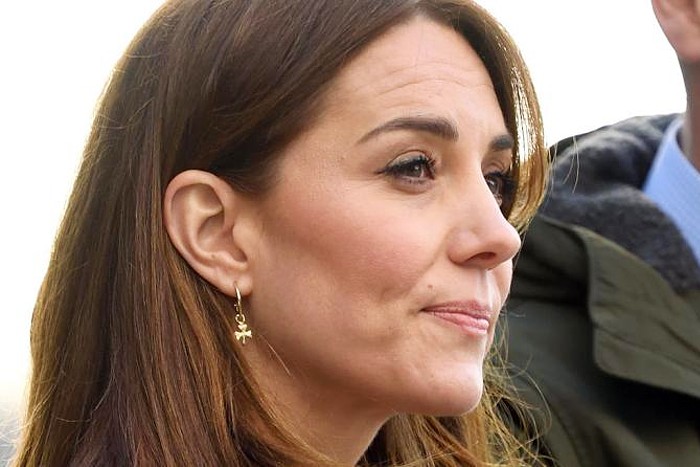

Review: Steven Soderbergh's Joyously Gay Behind The Candelabra
By Caspar Salmon | Film | May 22, 2013 |
By Caspar Salmon | Film | May 22, 2013 |
Steven Soderbergh’s new film, Behind the Candelabra, which premiered at Cannes and debuts on HBO on Sunday, is an object lesson in team effort. The whole collaborative nature of filmmaking is there on the screen to behold in the exquisite sets, costumes and make-up most of all, as these are the surface attraction of this joyously gay film. But the performances of Matt Damon and Michael Douglas, the entertaining and touching script by Richard LaGravenese, and the feather-light directorial touch of Soderbergh all add up to make Behind The Candelabra a rich, rewarding film.
Scott Thorson (played in the film by Matt Damon) was one of the last in a string of nubile men to be the lover of famed piano-meddler Liberace (Michael Douglas), and the film is based on the book he wrote about living as a sort of paid companion to this older, eccentric man. The script drawn from his book is a minor miracle of generous storytelling, giving equal weight to both Thorson and Lee (as Liberace was known to his entourage). It is a story about what the men give to each other, the rewards they find in each other’s company. Thorson gets recognition, riches and a tender family life from Lee; in return, the musician gets the happiness of sex and love, and the pleasure that it gives him to lavish care and attention on someone. The script treads a very careful line between seeking out the inherent hilarity of Liberace — a hugely camp, bejewelled egomaniac with a monstrous tendency to dominate his lovers, and a wish to remodel them in his own image — and revealing the humanity in him. This is the “behind” bit of the title: we see the heart of the man as well, his kindness and his weaknesses: his constant quest is for happiness and love.
Thorson has, if anything, the bigger role in the film: the daughter to Michael Douglas’ Mommie Dearest, as it were. Matt Damon plays him with his usual sensitivity, taking added delight in his transformation from country lunk into lustrous show-poney. His chemistry with Douglas feels warm and lived-in; they have, after the early seduction scenes, an easy feel in their moments together, a sweet body language in each other’s presence. In the scenes where the couple falls out, Damon articulates all the hurt and rejection of his character, and how lost and helpless he is without his Pygmalion. Michael Douglas, in the showier role, plays Liberace for the right amount of laughter, looking on the hilarious side of fabulous in an eye-watering array of capes, gowns, rhinestone suits and tiny shorts. He shows Liberace’s contradictions extremely well: his Catholicism and voracious sexual appetite, his look-at-me public persona and fairly simple, kind outlook towards his loved ones.
The film is classical in its composition: the director’s vision never intrudes on the story, and this for me represents the film’s strength and its weakness at once. Everything is tightly put together, the lighting exactly right and the camera always positioned just so, making this a delicately executed, sensitive work. But I could have wished, perhaps, for a less “straight” — in the original sense of the word — take on the topic. I would have liked to see more artistic audacity, a less literal engagement with the film’s events. There is a scene right at the end in which Soderbergh allows himself to spin a little fantasy sequence, which is perfectly done: it captures in a much more elliptic way the nature of Thorson and Liberace’s relationship.
The story, too, follows a rather square set pattern, detailing the relationship from beginning to end with the arc you would expect: mutual discovery, domestic bliss, problems, arguments, split and closure, in that order. We’ve seen this sort of thing in A Star Is Born, say; it’s a convention of films about showbusiness. I wonder if the picture might not have been better with a soupçon of Liberace’s gaudiness in its technical construction.
These are my only quibbles with this very solid film, which contains so much great stuff: the cameos for instance, from Debbie Reynolds as Liberace’s mother to Rob Lowe, camping it up as the ruthless plastic surgeon. Matt Damon’s Brazilian tan-line makes perhaps the best cameo of all, stealing a scene at the end of an argument. The couple of showbiz moments are well done, and the script has some powerful zingers, which help the whole thing romp along nicely.
After the zest and fizz of the scenes chez Liberace, the film retreats into a quieter mode, making the most of the emotion at its heart. It concludes well, on a note of pathos totally devoid of sentiment. If it is to be Soderbergh’s last film, it is a touching farewell.
← "New Girl's" Nick Miller's 12 Ways to Achieve a Perfectly Content Existence | 10 Of Cinema's Most Impressive Redneck Transformations (Plus Keanu Reeves) →

Is The Royal Family Trying to Make It Look Like Kate Middleton’s Dead?
What’s Old Is New Again: Old Hollywood Glamour Glitters at the 2024 Oscars
Al Pacino Presents Best Picture Oscar, Confuses Everyone
The Dangerous Lie Of 'TradWives'
A Legendary Horror Franchise Is Headed To Television
'The Mandalorian' Season 4 Is Probably Not Happening
More Like This
Kyle Mooney's Horror-Comedy 'Y2K' Goes Too Hard on Kyle Mooney's Sense of Humor
'Imaginary' Almost Sucks
Box Office Report: Kung Fu Sandworms
The 2024 Oscars Were Great Right Up Until the End
Kristen Stewart's 'Love Lies Bleeding' Is Gonna Kick Your Ass And Make You Beg For More
Reviews